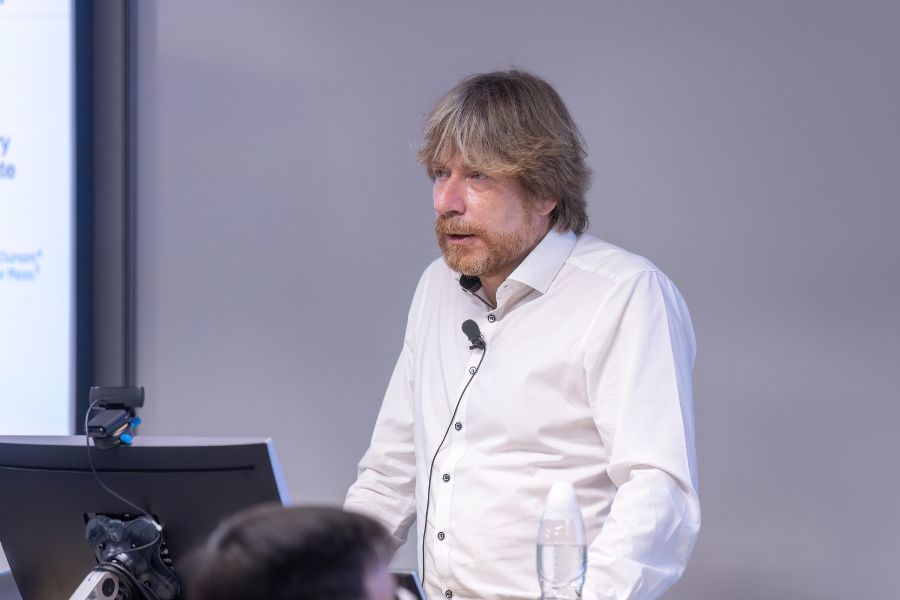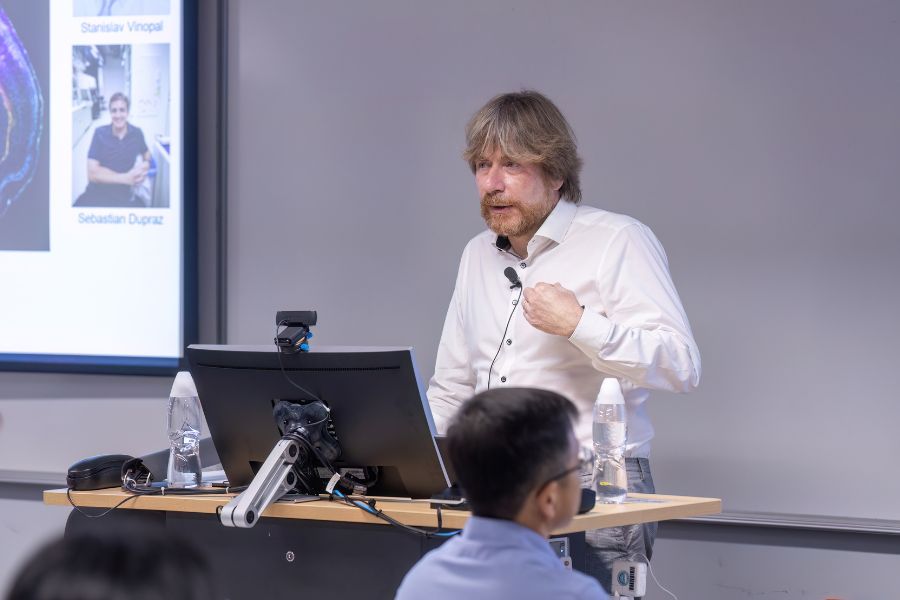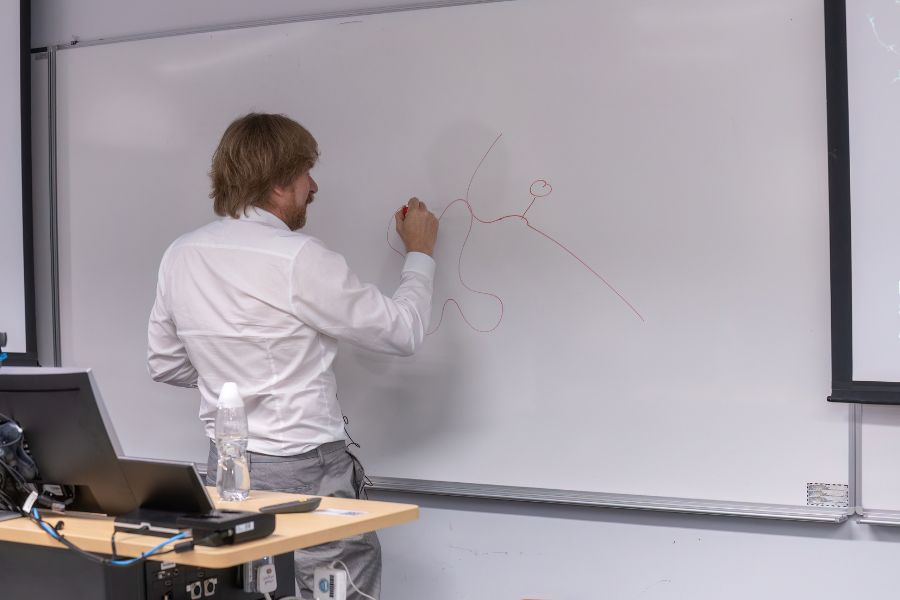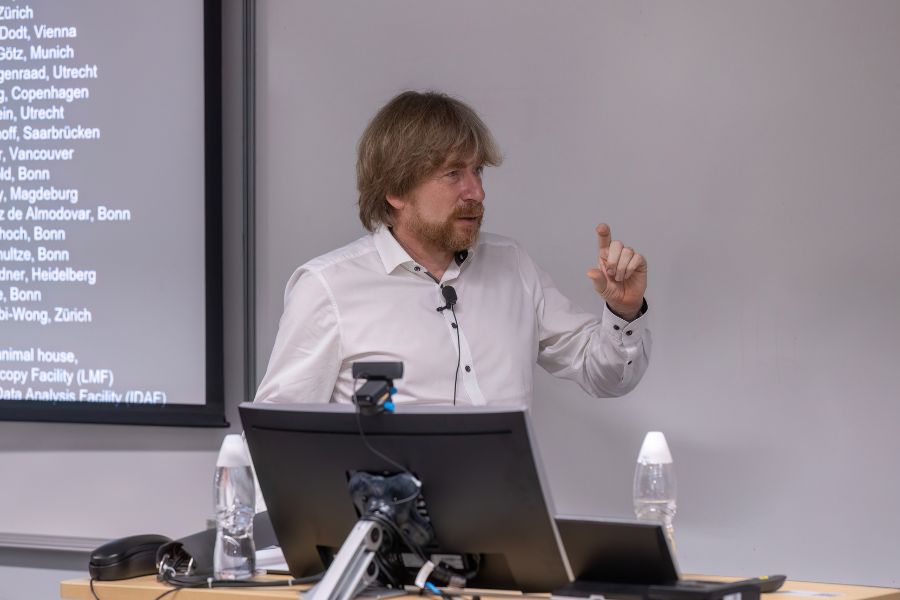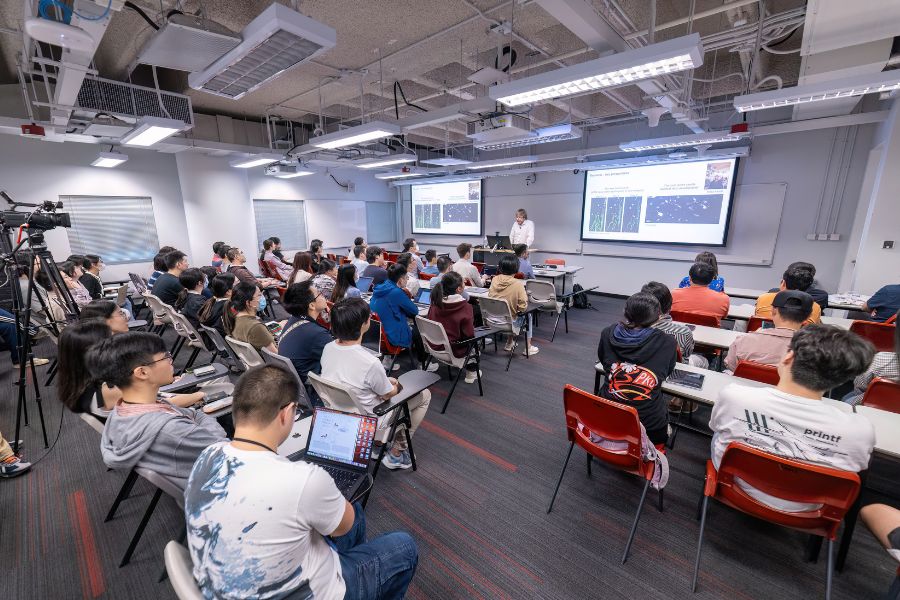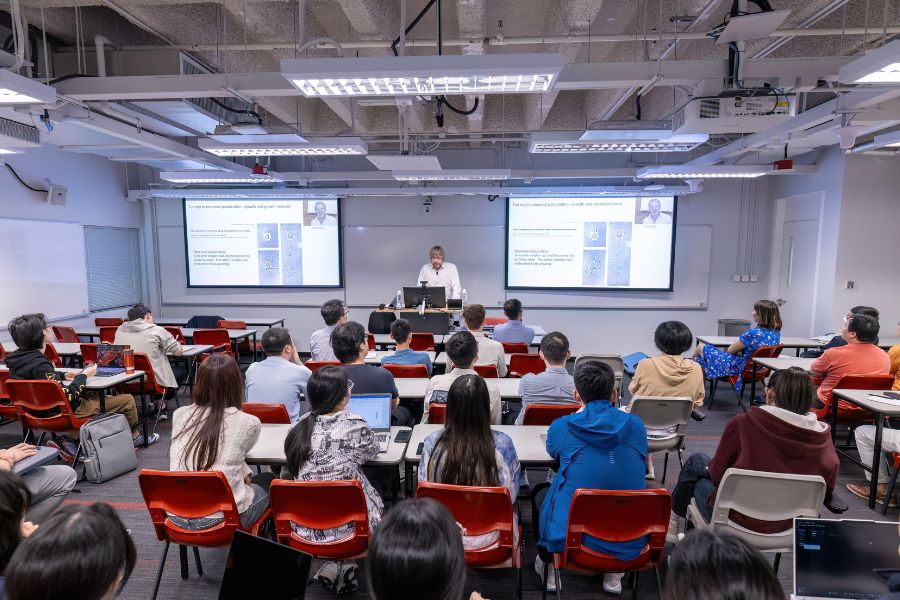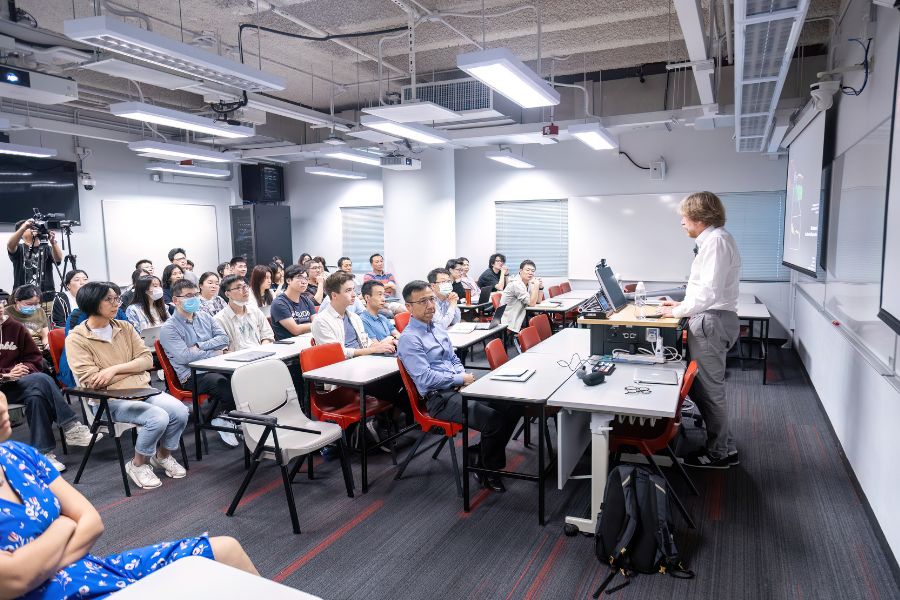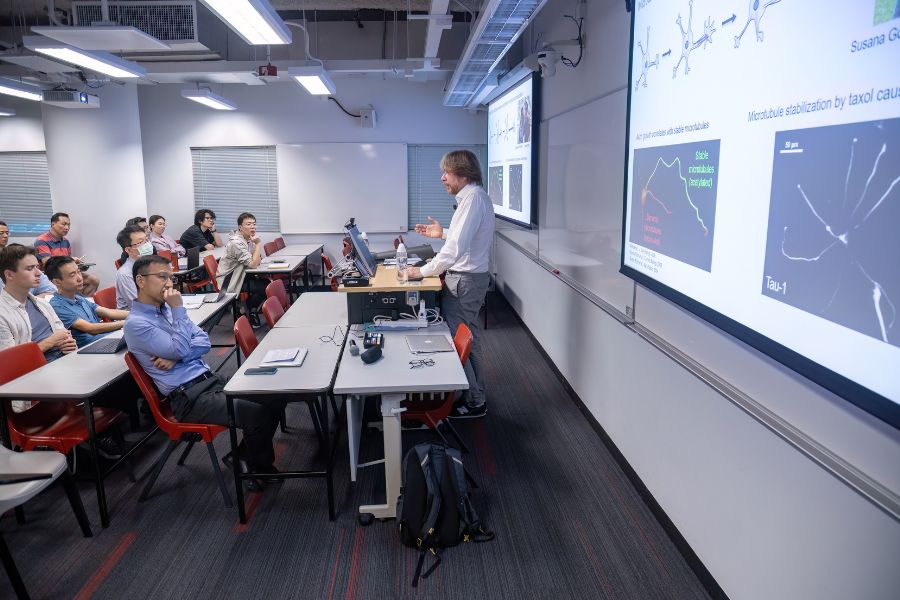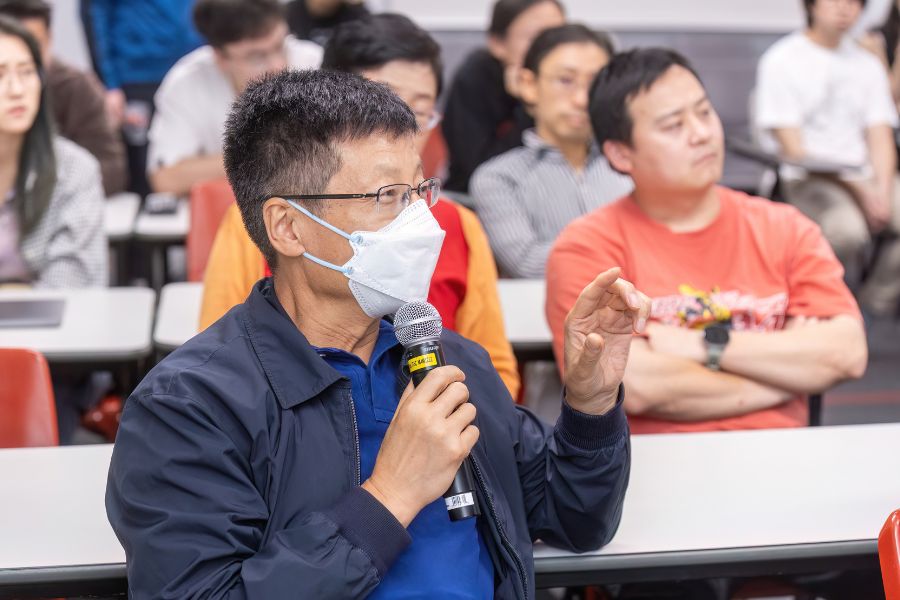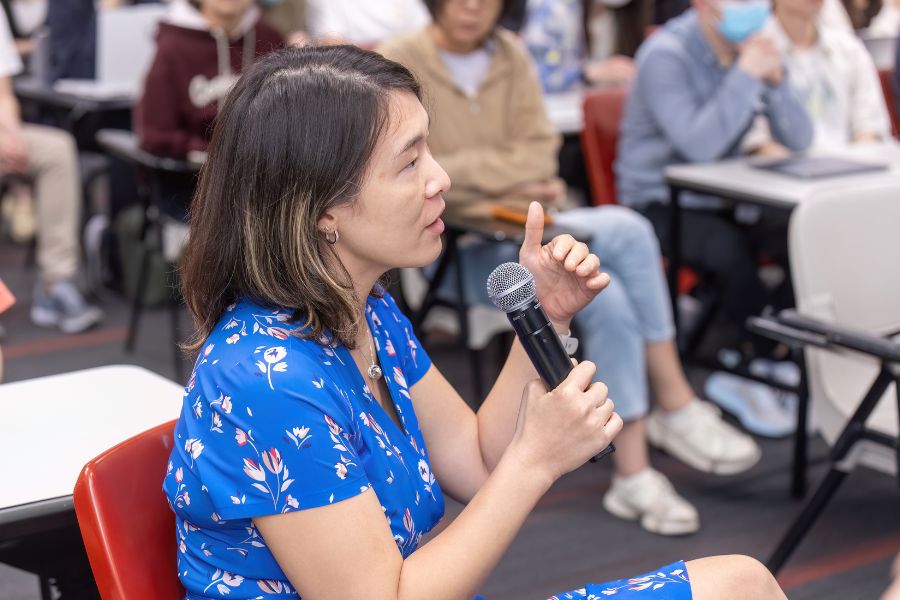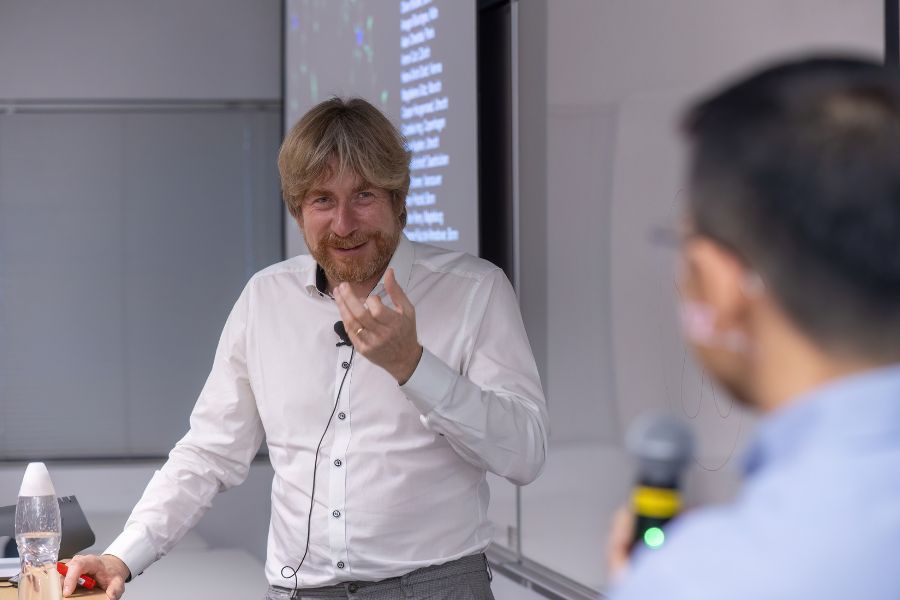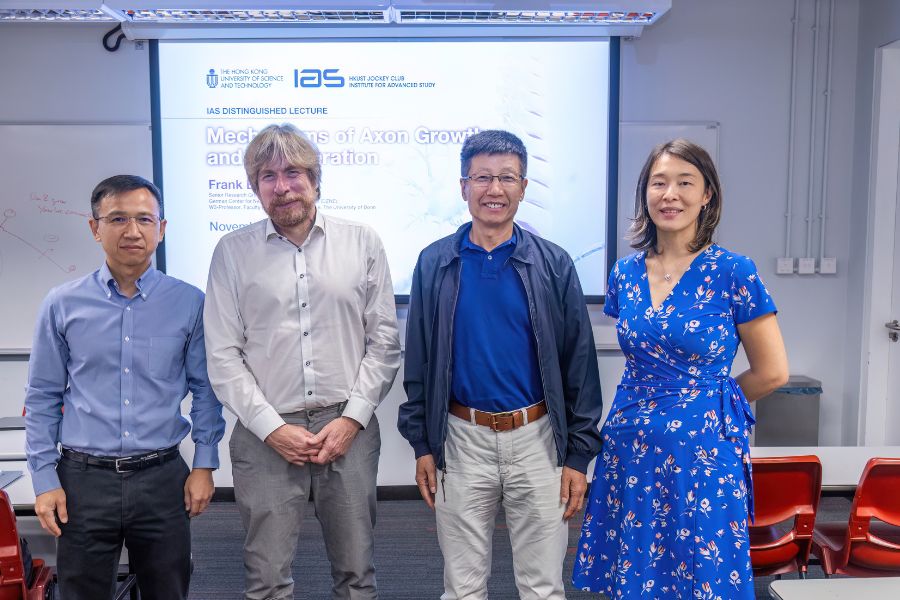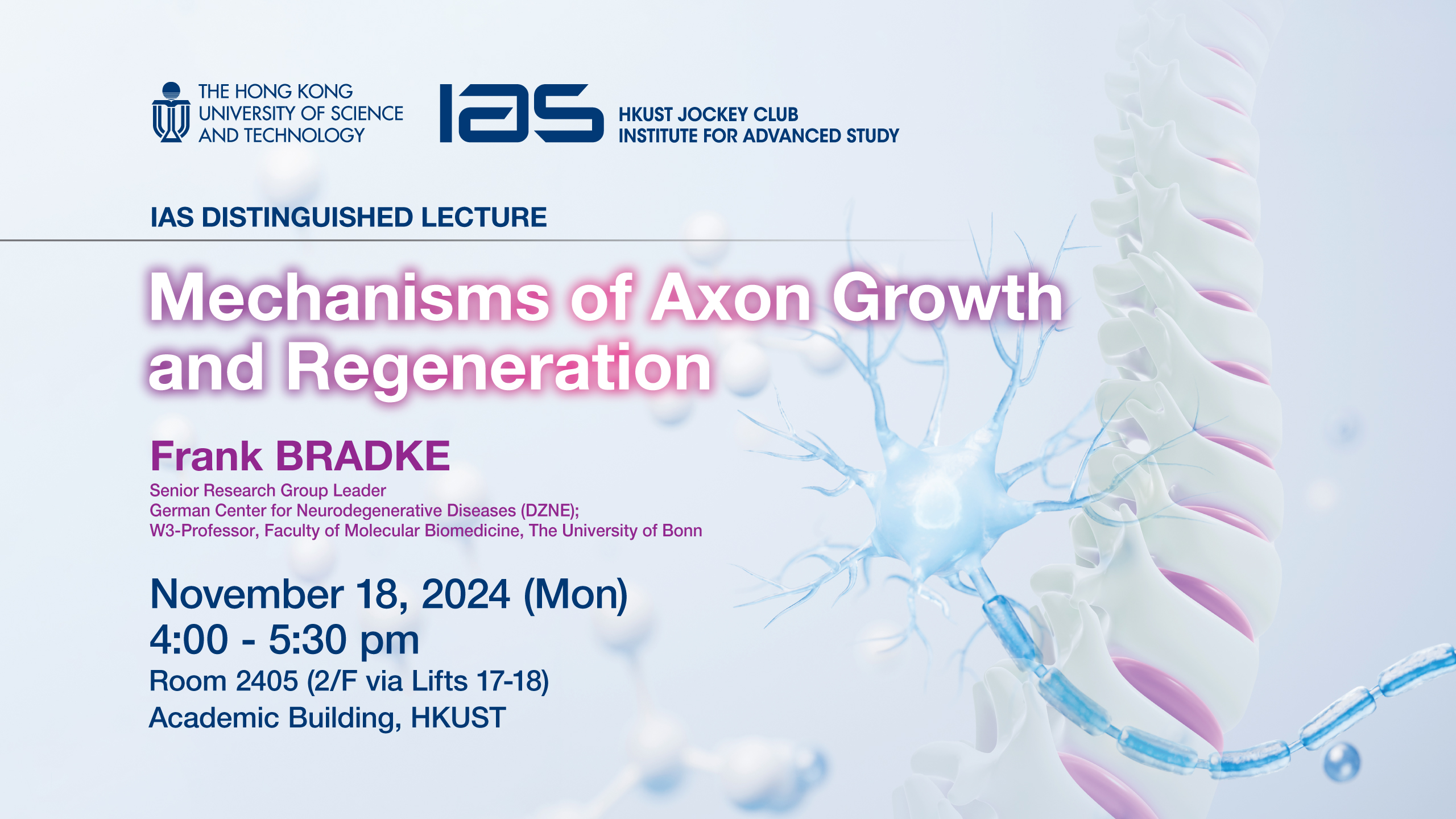Mechanisms of Axon Growth and Regeneration
Abstract
Almost everybody who has seen neurons under a microscope for the first time is fascinated by their beauty and their complex shape. Early on during development, however, neurons look round and simple without signs of their future complexity. How do neurons develop their sophisticated structure? How do they initially generate domains that later have distinct functions within neuronal circuits, such as the axon? And, can a better understanding of the underlying developmental mechanisms help us in pathological conditions, such as a spinal cord injury, to induce axons to regenerate?
In this lecture, the speaker will talk about the cytoskeleton as a driving force for initial neuronal polarization and axon growth. He will then explore how cytoskeletal changes help to reactivate the growth program of injured CNS axons to elicit axon regeneration after a spinal cord injury. Finally, he will discuss whether axon growth and synapse formation could represent mutually excluding processes. Following this developmental hypothesis helps us to generate a novel perspective on regeneration failure in the adult CNS and to envisage new paths to overcome it. Thus, this talk will describe how his group can employ developmental mechanisms to induce axon regeneration in the adult after a spinal cord injury.
About the Speaker
Prof. Frank BRADKE received his PhD in Biology from Heidelberg University in 1999. After receiving his doctorate, he moved to the US in 2000 to work as a Postdoctoral Fellow under Prof. Marc TESSIER-LAVIGNE, first at University of California, San Francisco and later at Stanford University. In 2003, he returned to Germany to join the Max-Planck Institute for Neurobiology as an Independent Junior Research Group Leader. He moved to the University of Bonn in 2011 and is currently the Senior Research Group Leader at the German Center for Neurodegenerative Diseases (DZNE) and the W-3 Professor in the Faculty of Molecular Biomedicine.
Prof. Bradke’s research focuses on how nerve cells grow during development and how these processes can be reactivated to induce nerve regeneration in the injured spinal cord. His team has a special interest in the skeleton of the cell, called the cytoskeleton. They showed that manipulation of the cytoskeleton with low doses of anticancer drugs leads to regrowth of nerves and reduction of scarring. His lab also developed a novel imaging technique that enables visualization of nerves at microscopic resolution within whole tissue.
Prof. Bradke serves on the editorial board of Current Biology and Experimental Neurology. He was awarded the Academy Prize from the Berlin-Brandenburg Academy of Sciences and Humanities (2024), the Henriette Herz Scout of the Alexander von Humboldt Foundation (2024) and the Carl Zeiss Prize from the German Society for Cell Biology (2021). He is also a Member of the Academia Europaea, the German National Academy of Sciences Leopoldina and the European Molecular Biology Organization.
For Attendees' Attention
Seating is on a first come, first served basis.

